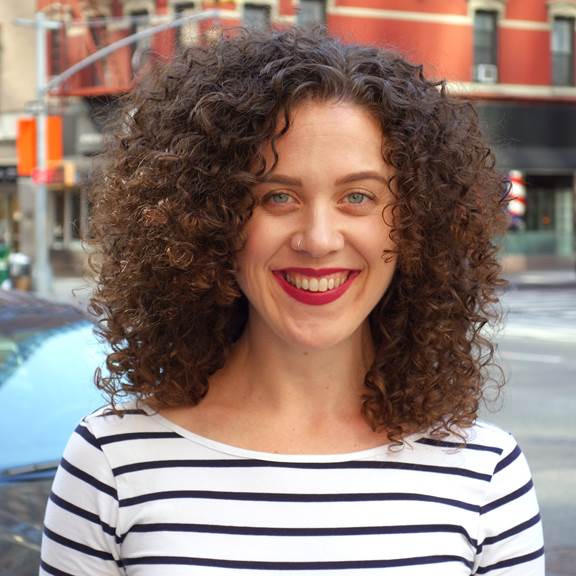In recognition and celebration of LGBTQ+ Pride Month, LISC’s Institute for Community Power delves into the intersections between the work of community development and that of queer and trans communities across the country around housing, land use, economic mobility and much more. In the piece that follows, Julia Duranti-Martinez, senior program officer for Community Research and Impact and a member of LISC's LGBTQ+ affinity group, highlights some of the struggles and triumphs of LGBTQ+ people and communities in the context of our sector, and of our society as a whole—and points to the paths leading to progress.
LGBTQ+ people have a powerful history of organizing and cooperation to support each other through the many decades where their ability to live and love openly has been criminalized; rebuild community spaces attacked by violent extremists and police raids; demand medical and political institutions respond to the devastating HIV/AIDs crisis; and create spaces of celebration, joy, and community throughout, to name just a few examples. More LGBTQ+ centers opened in the last decade than in any prior decade in U.S history, and a growing number of self-organized housing and worker cooperatives, collectives, and mutual aid groups have mobilized quickly to meet the needs of low-income and unhoused BIPOC queer and trans people through the pandemic and beyond.
This ongoing resistance remains critical as LGBTQ+ people face an alarming rise in assaults on their lives and rights. The Human Rights Campaign recently declared a state of emergency for LGBTQ+ people in the U.S for the first time in history, as over 525 anti-LGBTQ+ bills were introduced and 75 became law in 2023, with the majority focused on trans and non-binary youth. These policies have accompanied violent public demonstrations and attacks on LGBTQ+ people and the organizations that support them, with a record number of transgender people killed in 2021 and 2022, the majority of whom were Black and Latinx trans women; over 141 documented protests, attacks, and threats against drag events in 47 states in 2022; and 71% of LGBTQ+ centers and organizations reporting threats and harassment over the past two years.
Deeply rooted in anti-LGBTQ+ attitudes in U.S history and culture, this recent backlash against gains in legal protections and visibility compounds direct and structural violence that LGBTQ+ communities and particularly LGBTQ+ people of color were already much more likely to experience. LGBTQ+ unemployment and poverty are consistently higher than the national average, and LGBTQ+ people and particularly trans people are also disproportionately likely to experience housing insecurity and homelessness. Lower income and wealth in turn make it more difficult for LGBTQ+ entrepreneurs to qualify for loans, which may be contributing to the closure of LGBTQ+ businesses amidst rising real estate costs and gentrification-driven displacement in communities throughout the country
Yet there has been little focus within our sector on development without displacement by and for queer and trans communities, and the challenges and opportunities they face in scaling this work. As extremist groups and policies increasingly target LGBTQ+ people, strategies to build queer and trans community and economic power for systems change are urgently needed, including securing control over essential community resources and financing to support these efforts.
Our latest LISC Institute for Community Power Spotlight focuses on the intersections between LGBTQ+ liberation and community development and celebrates the wins of groups at the forefront of this work. You’ll find a feature article sharing lessons from successful LGBTQ+ housing efforts in Chicago, Kalamazoo, and the Twin Cities, as well as reporting, case studies, and research on LGBTQ-led efforts to reclaim land, housing, food, community spaces, and more.
(LISC Community Research and Impact will continue exploring this topic over the next year through a collaborative research project with support from the Robert Wood Johnson Foundation. We invite your feedback or suggestions to help inform this ongoing work.)
About the Author
 Julia Duranti-Martínez, Senior Program Officer for Community Research & Impact
Julia Duranti-Martínez, Senior Program Officer for Community Research & Impact
Prior to joining LISC, Julia (she/her) facilitated coalition organizing, advocacy and capacity-building with community land trusts in New York City, conducted collaborative community research in a self-built neighborhood in the Dominican Republic, and worked in Colombia providing human rights accompaniment, policy analysis, and popular education with communities resisting displacement and organizing for collective land rights. Julia has also worked in family and emergency services for Latinx immigrants in Portland, OR, and volunteered in Bolivia and Chile. She holds an M.S in Community and Regional Planning and an M.A in Latin American Studies from the University of Texas at Austin.